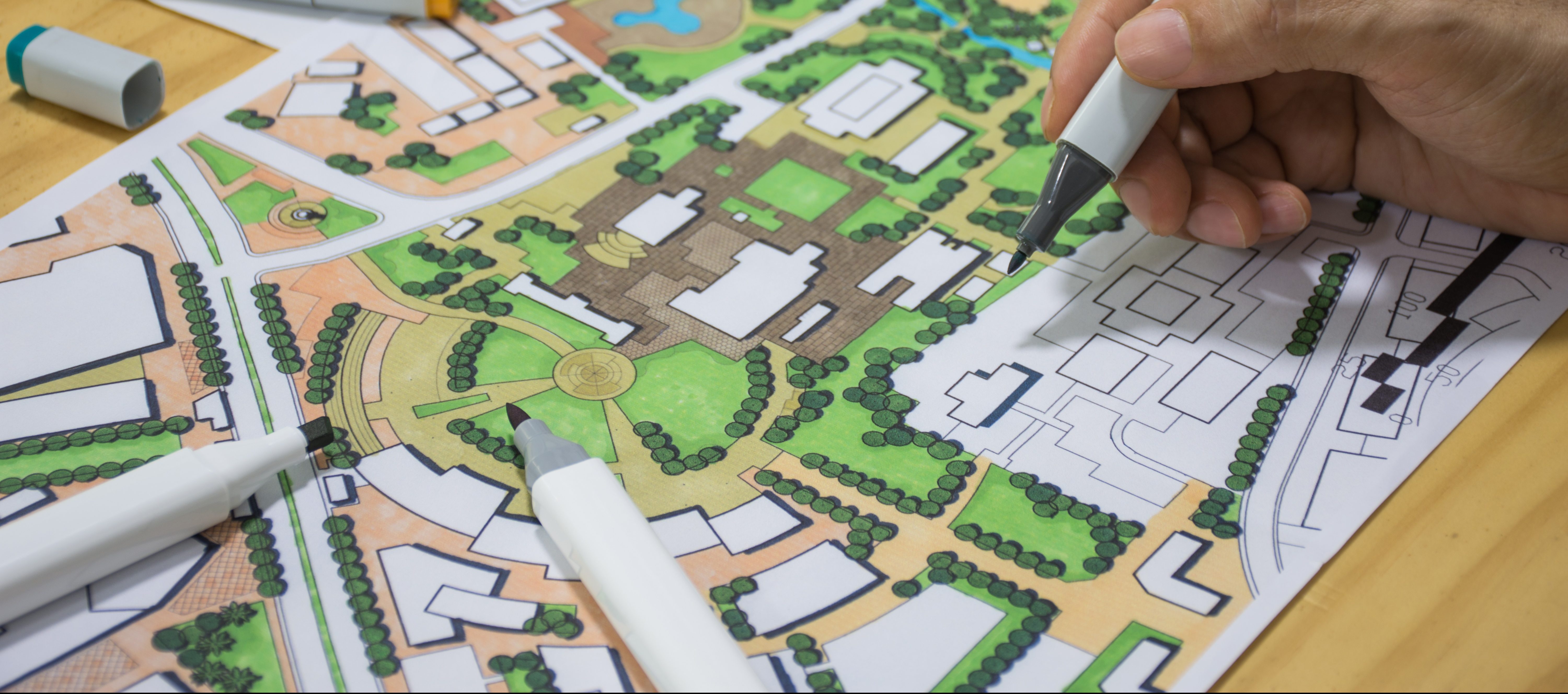Scotland’s Fourth National Planning Framework Draft Published
The long-awaited draft update to the National Planning Framework (NPF4) has been published by Scottish Government.
NPF4 sets out the Scottish Government’s priorities and policies for the planning system up to 2045 and how their approach to planning and development will help to achieve a net zero, sustainable Scotland by 2045. NPF4 incorporates Scottish Planning Policy and the NPF into a single document and will form part of the statutory development plan.
Key points in the NPF4 draft include:
- A renewed emphasis on sustainable places – “Our future net zero, nature-positive places will be more resilient to the impacts of climate change and support the recovery and restoration of our natural environment. To respond to the global biodiversity crisis, nature recovery and connected blue and green infrastructure must be at the heart of all our future places”.
- Spatial strategies for different areas of Scotland.
- Recognition of the mitigation hierarchy and that development proposals should provide significant biodiversity enhancements (supporting nature networks and connectivity), in addition to any proposed mitigation. Although it states “Biodiversity enhancements should be secured within a reasonable timescale and with reasonable certainty. They should include management arrangements for their long-term retention and monitoring, wherever appropriate.” There is currently no detail on what this will involve and how it will be applied and enforced.
- Proposals for local development should only be supported if they include appropriate measures to enhance biodiversity in proportion to the nature and scale of development.
- Planning applications would need to show how they could help meet net zero carbon emissions by 2045.
- Recognition of irreplaceable habitats and protections outlined for the protection of ancient woodland is to be welcomed.
- Limiting urban expansion where brownfield, vacant and derelict land and buildings can be used more efficiency and recognition of the role that vacant and derelict land can have in restoration of biodiversity.
- Support of 20-minute neighbourhoods and a place-based approach.
- Embedding of Regional Land Use Partnerships and continued commitment shown to delivering the Central Scotland Green Network.
- Recognition of the value of blue and green infrastructure.
Although many of the ambitions and clear links to the climate emergency and biodiversity crisis are to be welcomed, there is a lack of detail on implementation, enforcement, and the legal weight behind these outline proposals so that transformational change can be delivered. The plan is also heavily caveated with the use of “should“. CIEEM looks forward to working with Scottish Government in the development of the detailed delivery programme.
At a time when we should be strengthening protections there are some concerning statements such as: “Development proposals that affect a site designated as a Local Nature Conservation Site or a Local Landscape Area should be supported where development will not have significant adverse effects on the integrity of the area or the qualities for which it has been identified; or any such effects are clearly outweighed by social, environmental or economic benefits of local importance“.
We need detail on how ‘positive effects for biodiversity’ will be assessed in a tangible, measurable, and consistent way across Scotland. We also, have concerns surrounding capacity and capability within Local Authorities. Each Local Authority should have, as a bare minimum, ecologists and environmental planners who are adequately resourced and trained. Without in-house ecological expertise in Local Authorities, positive effects for biodiversity cannot be assessed and delivered. To deliver transformational change, the outline plans in NPF4 for positive effects for biodiversity must tie in with the Land Use Strategy and Scottish Biodiversity Strategy.
A public consultation on the draft document is open until 31 March 2022. The CIEEM Scotland Policy Group will be responding to the consultation, and we welcome input from all our members in shaping our response. If you would like to submit comments, please contact policy@cieem.net.
